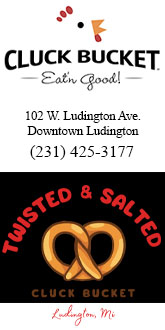 Good Neighbor Tips from Erin Doan, State Farm Insurance, Scottville,www.erindoan.com.
Good Neighbor Tips from Erin Doan, State Farm Insurance, Scottville,www.erindoan.com.
Banks and credit unions may seem very similar, but these two financial institutions serve customers in slightly different ways. Know the difference between banks and credit unions so that you can determine which works better for your needs.
What Is a Credit Union?
A credit union is a nonprofit, member-owned cooperative that provides financial services to its members. Credit unions focus on saving and borrowing, but they may offer other common banking services.
Credit union membership is based on a certain field. These membership fields can be occupational, associational or geographical. If you qualify, your first deposit also counts as your first purchased share. This makes you a member and partial owner of the credit union.
You might choose a credit union if:
- You or a family member qualifies for the field of membership.
- The rates and fees are better for your budget.
- Your financial needs are relatively basic. Not all credit unions offer advanced financial planning or online financial tools.
What Is a Bank?
A bank is a commercial entity that offers deposits, withdrawals, savings and loans. Banks generally have bigger budgets, as they are for-profit entities. This allows banks to offer more conveniences, such as multiple ATM locations. Banks do not require membership, though some require a minimum balance to have an account.
You might choose a bank if:
- You prefer mobile and online banking. These services are not always available through credit unions.
- Your financial needs are complex. For example, if active investing is your passion, a credit union may not have the resources you need.






























.png)


































